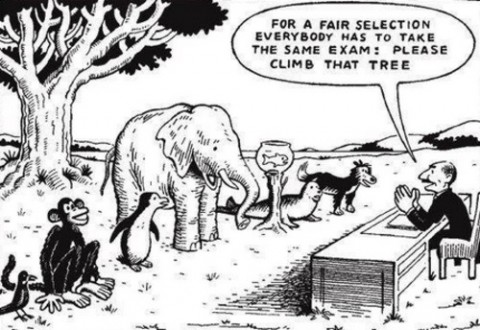The Organisation for Economic Co-operation and Development has warned that the use of technology in schools may be doing more harm than good.
It found that countries that have invested heavily in information and communications technology in schools show no appreciable improvement in student achievement.
- That’s not what they’re for.
- Seldom is the curriculum and support infrastructure present to exploit technology.
- Seldom does the teacher have the experience to exploit technology
- The examination infrastructure is weighted towards using paper and pencil (and, no, ticking multiple choice boxes on a computer doesn’t constitute exploiting technology)
- Who cares if they don’t raise results? Exam results are more about finding ways to write off sections of our population. We standardise exams because we can’t standardise children.
- Most schools provide 1-2 hours per week of computer access. Maybe they shouldn’t invest as most kids get plenty of access outside school. But if schools don’t invest, you’ve just created a digital divide. Well done.
- This is one of those moments where we train children to do one thing and then test them (measure their progress) using a completely different methodology. It’s like we are criticising a fish because it can’t climb a tree.
Our school system was designed during the industrial revolution. We need to think about what schools look like during the knowledge revolution.
As a special prize, some Ken Robinson.
